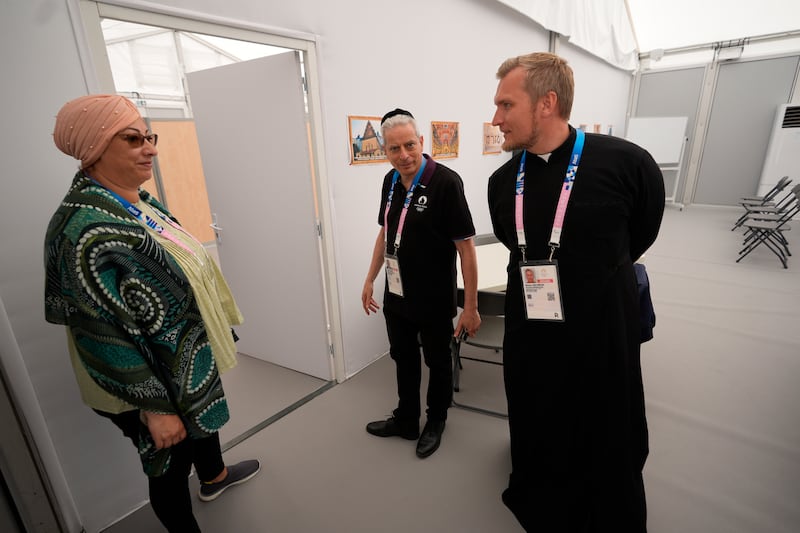Muslims competing for France in the Olympics won’t be allowed to wear their religious head coverings during their events due to the country’s laws regarding religious symbols at sporting events, according to The Cut.
These athletes will be able to wear hijabs in the Olympic Village, the article noted, while athletes representing other countries will have the option to wear religious head coverings at all times, including during their events.
France’s policies on religious expression during the Olympics have sparked outrage from international organizations and human rights groups, including the United Nations.
Why can’t French Muslim athletes wear head coverings?
French authorities justify the hijab ban at the Paris Olympics by citing the country’s “secularism principle,” according to The Cut.
French news outlet France 24 describes the secularism principle like this: “France not only protects freedom of religion, but guarantees freedom from it.”
The act of wearing headscarves for religious reasons was banned from French public schools back in 2004. This September, France’s sports minister, Amélie Oudéa-Castéra, applied the principle to France’s Olympic athletes, too, according to The Cut.
She compared the athletes to public servants.
“That means the prohibition of any type of proselytising and the absolute neutrality of the public service,” Oudéa-Castéra said, per The Cut. “Which means that the representatives of our delegations, in our French teams, will not wear the headscarf.”
Backlash to France’s hijab ban for French athletes
France’s rules for its Olympians affect Muslim women, in particular, since Muslim women often wear headscarves as part of their religious expression, according to NPR.
French athletes at all levels, not just Olympians, have long complained about the ban — or simply have left France to get away from it.
“They get to a point of constantly being asked to remove their clothing, to give up a part of their identity if they want to progress,” said Anna Błuś, a scholar at Amnesty International, a human rights group, to NPR. “And a lot of the women that I spoke to said that they didn’t see a future for themselves in France and that they were planning to leave the country and to compete for other national teams.”
“No one should impose on a woman what she needs to wear, or not wear,” said Marta Hurtado, a spokesperson for the United Nations’ human rights office, according to The Guardian.
Other human rights organizations have written France about the ban.
In the midst of this pushback, multiple groups, like the World Economic Forum and the International Olympic Committee, are calling this year’s Games the “Gender Equal Olympics,” per The Cut. This year’s Games have an equal participation rate for male and female athletes.
“Banning French athletes from competing with sports hijabs at the Olympic and Paralympic Games makes a mockery of claims that Paris 2024 is the first Gender Equal Olympics,” said Błuś in her report from Amnesty International. “(The ban) lays bare the racist gender discrimination that underpins access to sport in France.”

